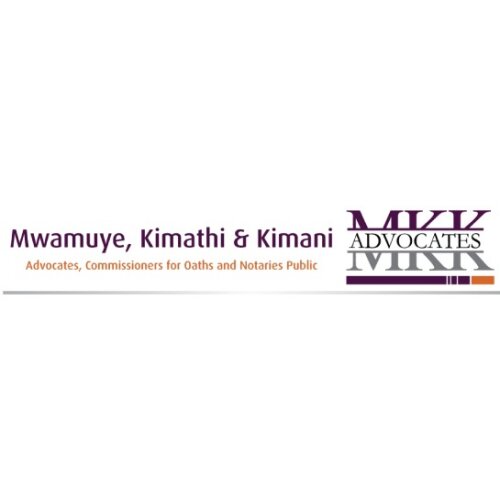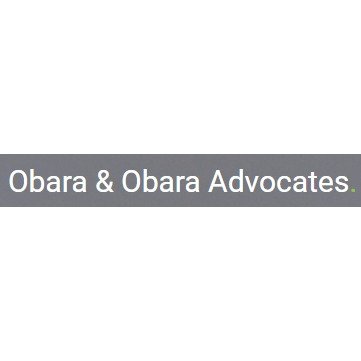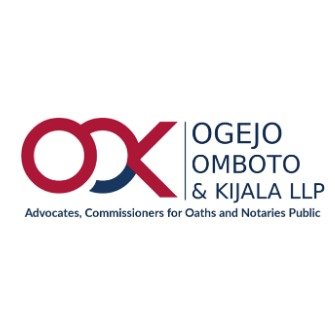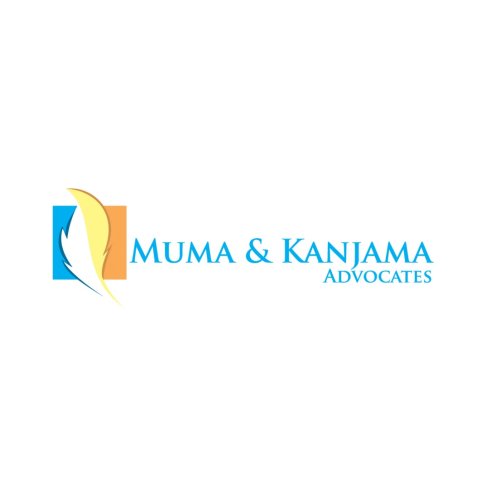Best Restructuring & Insolvency Lawyers in Kisumu
Share your needs with us, get contacted by law firms.
Free. Takes 2 min.
List of the best lawyers in Kisumu, Kenya
About Restructuring & Insolvency Law in Kisumu, Kenya
Restructuring and Insolvency law in Kisumu, Kenya deals with matters related to financial distress in both individuals and businesses. It provides a legal framework for reorganizing businesses, managing debts, and sometimes liquidating assets to pay off creditors. As Kisumu continues to grow as an economic hub in Western Kenya, businesses and individuals alike may face financial difficulties that require careful legal navigation. The key goal of insolvency laws is to provide fair treatment to both debtors and creditors while ensuring economic stability. These processes can be complex, and understanding the law is essential for making informed decisions.
Why You May Need a Lawyer
Legal assistance is vital when facing restructuring or insolvency challenges. Here are some common scenarios when you may require a restructuring or insolvency lawyer in Kisumu:
- Your business is experiencing sustained financial losses and struggling to meet its financial obligations.
- You are an individual who has accumulated unmanageable debts and is facing lawsuits or creditor claims.
- Your company is considering options such as mergers, debt refinancing, or voluntary arrangements with creditors.
- You have received a statutory demand or winding-up petition from creditors.
- You wish to ensure your rights are protected during a liquidation process, whether you are a creditor, shareholder, director, or employee.
- You need advice on restructuring loans, negotiating settlements, or avoiding bankruptcy through alternative arrangements.
Lawyers can guide you through the legal process, represent you in court or negotiations, and help you make informed decisions to protect your interests.
Local Laws Overview
The legal framework governing restructuring and insolvency in Kisumu is primarily drawn from national laws, including the Insolvency Act, 2015. This Act provides a unified insolvency regime for individuals, partnerships, and companies throughout Kenya. The main components of the law include:
- Administration and Company Voluntary Arrangements (CVAs): These allow businesses to reorganize their affairs while under court or creditor oversight, often done to avoid liquidation and restore solvency.
- Bankruptcy for Individuals: Debt relief mechanisms are available for natural persons who are unable to meet their debt obligations.
- Liquidation Procedures: The law outlines voluntary and compulsory liquidation processes where a company's assets are sold off to repay creditors before dissolution.
- Receivership: Creditors can appoint a receiver over a debtor’s assets if terms of debt are breached.
- Creditor’s Rights and Priorities: The Act specifies the order of payment to creditors and safeguards for secured creditors, employees, and other stakeholders.
- Cross-Border Insolvency: Provisions exist for handling cases where assets or creditors are located outside Kenya.
Local courts in Kisumu, such as the High Court, handle insolvency and restructuring matters within the area. It is important to work with professionals familiar with the local legal system and business environment.
Frequently Asked Questions
What is the difference between restructuring and insolvency?
Restructuring refers to efforts to reorganize a company’s finances or operations to avoid insolvency. Insolvency is a legal status where an individual or business cannot pay its debts as they become due.
How can a business avoid liquidation in Kisumu?
A business can consider options like Company Voluntary Arrangements, negotiations with creditors, debt restructuring, or entering administration to facilitate recovery instead of liquidation.
What happens to employees during company insolvency?
Employees may be laid off or lose their jobs. However, the law provides that employee claims, such as unpaid wages and terminal benefits, are prioritized during asset distribution.
Can an individual declare bankruptcy in Kisumu?
Yes, individuals can apply for bankruptcy under the Insolvency Act, 2015, if unable to pay debts. This provides legal protection and a structured process for debt resolution.
What is receivership and when is it used?
Receivership is a process where a secured creditor appoints an independent receiver to manage or sell specific assets to recover outstanding loans if the debtor defaults on repayment.
Do I lose all my assets in insolvency?
Not necessarily. Certain assets may be protected, and the law aims for a fair balance between debtor and creditor rights. Exemptions may apply depending on the case.
How long does an insolvency process take?
The duration varies with the complexity of the case, number of creditors, and type of insolvency. It can range from several months to years.
Who oversees insolvency matters in Kisumu?
The High Court in Kisumu and appointed insolvency practitioners, such as administrators and liquidators, oversee these matters in accordance with Kenyan law.
Can creditors take action against me during insolvency?
Generally, creditors are required to halt separate legal actions against a debtor once formal insolvency proceedings begin, and must pursue claims through the court-supervised process.
How do I start the insolvency or restructuring process?
Begin by consulting a qualified insolvency lawyer or practitioner. They will assess your situation, recommend options, and commence proceedings with court filings or negotiations as needed.
Additional Resources
If you need further information or support regarding restructuring and insolvency in Kisumu, consider seeking assistance from the following:
- The Office of the Official Receiver, Kenya: Responsible for overseeing insolvency processes and providing information on legal requirements.
- The Law Society of Kenya (LSK) - Kisumu Chapter: Can assist with finding qualified insolvency lawyers in the region.
- Kisumu High Court: Handles insolvency applications, liquidation petitions, and related legal proceedings.
- Financial Institutions and Creditors’ Associations: May offer advisory services for debt restructuring and negotiation.
- Certified Insolvency Practitioners: Licensed professionals authorized to act as administrators, receivers, or liquidators.
Next Steps
If you are facing financial distress or considering your options for restructuring or insolvency in Kisumu, you should:
- Consult a qualified lawyer with expertise in restructuring and insolvency matters. They can offer legal advice tailored to your specific situation.
- Gather all relevant financial documents, creditor communications, and business records.
- Explore alternatives to insolvency, such as renegotiating debts or securing refinancing, with the help of your lawyer.
- If formal proceedings are needed, your lawyer will help you file the required applications with the appropriate court and represent your interests throughout the process.
- Continue to communicate with stakeholders such as creditors, shareholders, employees, or business partners, following legal advice provided to maintain compliance at all stages.
Taking prompt legal action increases the likelihood of finding a viable solution and minimizing adverse consequences. Reach out to a trusted legal advisor in Kisumu to discuss your concerns and chart the best path forward.
Lawzana helps you find the best lawyers and law firms in Kisumu through a curated and pre-screened list of qualified legal professionals. Our platform offers rankings and detailed profiles of attorneys and law firms, allowing you to compare based on practice areas, including Restructuring & Insolvency, experience, and client feedback.
Each profile includes a description of the firm's areas of practice, client reviews, team members and partners, year of establishment, spoken languages, office locations, contact information, social media presence, and any published articles or resources. Most firms on our platform speak English and are experienced in both local and international legal matters.
Get a quote from top-rated law firms in Kisumu, Kenya — quickly, securely, and without unnecessary hassle.
Disclaimer:
The information provided on this page is for general informational purposes only and does not constitute legal advice. While we strive to ensure the accuracy and relevance of the content, legal information may change over time, and interpretations of the law can vary. You should always consult with a qualified legal professional for advice specific to your situation.
We disclaim all liability for actions taken or not taken based on the content of this page. If you believe any information is incorrect or outdated, please contact us, and we will review and update it where appropriate.














